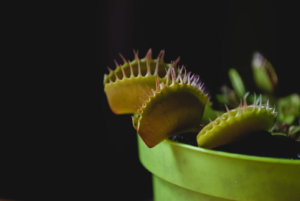It can be difficult to become a plant parent when you’re already a pet parent, as so many indoor plants are toxic to our beloved furry friends. In fact, it’s surprising how many plants can do terrible damage when consumed by pets compared to the short list of safe flora for pet-friendly homes.
Fortunately, a few plants will cause minimal damage if accidentally consumed. Here are ten pet-friendly houseplants to freshen up your home.
Marigolds
Marigolds are one of the few pet-safe potted flowers that you can use to decorate your home. Your pet might experience some mild digestive discomfort if consumed, but it won’t cause any serious or lasting harm. Marigolds have long been beloved for their ability to deter pests, but they also have other benefits. Marigold plants are capable of healing minor maladies, like skin irritation and sore throats.
These fragrant blooms also make for a great, affordable gift. Marigolds are annuals— meaning they only bloom once— but are also self-seeding. With the right care and attention, you can keep your marigolds coming back to bloom.
Spider Plants
Spider plants are one of the easiest, low-maintenance plants to grow at home. They’re also a pet-safe option, making them ideal for pet parents who are just getting started with plant care. These plants practically grow themselves and generate “babies” that can be propagated and given as gifts.
Don’t be deterred by the name; spider plants get their name from the shape of the leaves. These purifying plants look great in a hanging planter (that you can dress up as a spider for Halloween) or on the edge of a bookshelf or side table.
Aluminum Plants
Aluminum plants are named for their stunning silvery markings, and are a popular choice for kitchens and entryways. There aren’t many houseplants that are both pet safe and thrive in low light conditions, but this is one of them.
The aluminum plant is quite hardy and only needs to be watered when the soil is completely dried out. If your pet likes to get into plants, you can put this one up on a shelf in the shadows without worrying about exposure to the sun.
Christmas Cactus
If you like decorating your home for the holidays with florals, poinsettias aren’t a pet-safe option. In fact, they’re considered one of the most toxic house plants to pets. Fortunately, the Christmas cactus is a pet-safe alternative. While chewing on the greenery could cause your pet to vomit, it won’t cause any lasting damage. Additionally, the spiny leaves are less appealing to pets than some other plants.
When shopping for a Christmas cactus, don’t be surprised if you come across a Thanksgiving cactus. This isn’t a marketing ploy; they’re actually different plants within the same family. The ridges on the two plants are slightly different, but they’re both safe for pets.
Air Plants
Air plants are unique plants that require no dirt to grow— hence the name. You can leave these to grow on your kitchen counter or get creative with unique vessels, like shells or wire frames. The trick to caring for these plants is dipping them in water once per week to rejuvenate the roots. Alternatively, you can keep them in a humid area like the bathroom or kitchen.
While air plants are non-toxic to pets, their lack of soil rooting and interesting texture make them an ideal chew toy. Keep your air plants out of reach for their sake, rather than your pets’.
African Violets
African violets are a classic floral house plant that thrives in low light conditions and is easy to care for. Pet parents rejoice at the fact that this delicate bloom is non-toxic to pets. Their low-light and low-maintenance nature make African violets ideal for an office or dimly lit room.
These blooms like a lot of humidity and warmer temperatures. When you water your African violet, lift the leaves and water underneath to prevent browning.
Venus Flytrap
Venus flytraps are a cool houseplant and amazing conversation piece. There’s a misconception that these carnivorous plants are hard to care for. In reality, if you set your venus fly trap in an area that gets a lot of bugs, it will take care of itself. You can always toss in a fly once or twice per month to keep it going.
Unless your pets are insects, the Venus flytrap is animal-safe. This unusual plant likes bright, indirect light, and warm temperatures. These biting blooms are also pretty to look at, with a vibrant green stalk and delicate pink interior.
Bamboo
Bamboo is the preferred treat of giant pandas and Eastern cuisine enthusiasts. As such, it makes a wonderful houseplant for pet parents, as it’s entirely non-toxic.
Bamboo grows best in rocks and water rather than soil and does well in low-light settings. Bamboo also has air purifying effects, making it a great addition to any home.
Blue Echeveria
Finally, one of the few non-toxic succulents is the simple blue echeveria. Named for its subtle blue tone, this Mexican plant is also known as hen and chicks— a term that refers to all succulents that reproduce tiny, adorable succulent babies.
There are many options when looking for pet-friendly houseplants to bring your home to life. Keep these options in mind when giving gifts to fellow pet lovers in your life.
Donkey’s Tail Succulent
The Donkey’s Tail succulent is another desert plant from Mexico and isn’t toxic to pets. This succulent variety is easy to grow and maintain, requiring minimal watering and well-draining soil. The leaves are silvery green, thick, and short, similar to the fur on a donkey’s tail.
These succulents are a vining plant like the string of pearls but grow in a thicker, lusher strand. This plant loves the sun and looks amazing in a hanging pot, making it a great option if you have curious cats who explore your shelves and high storage spaces.


